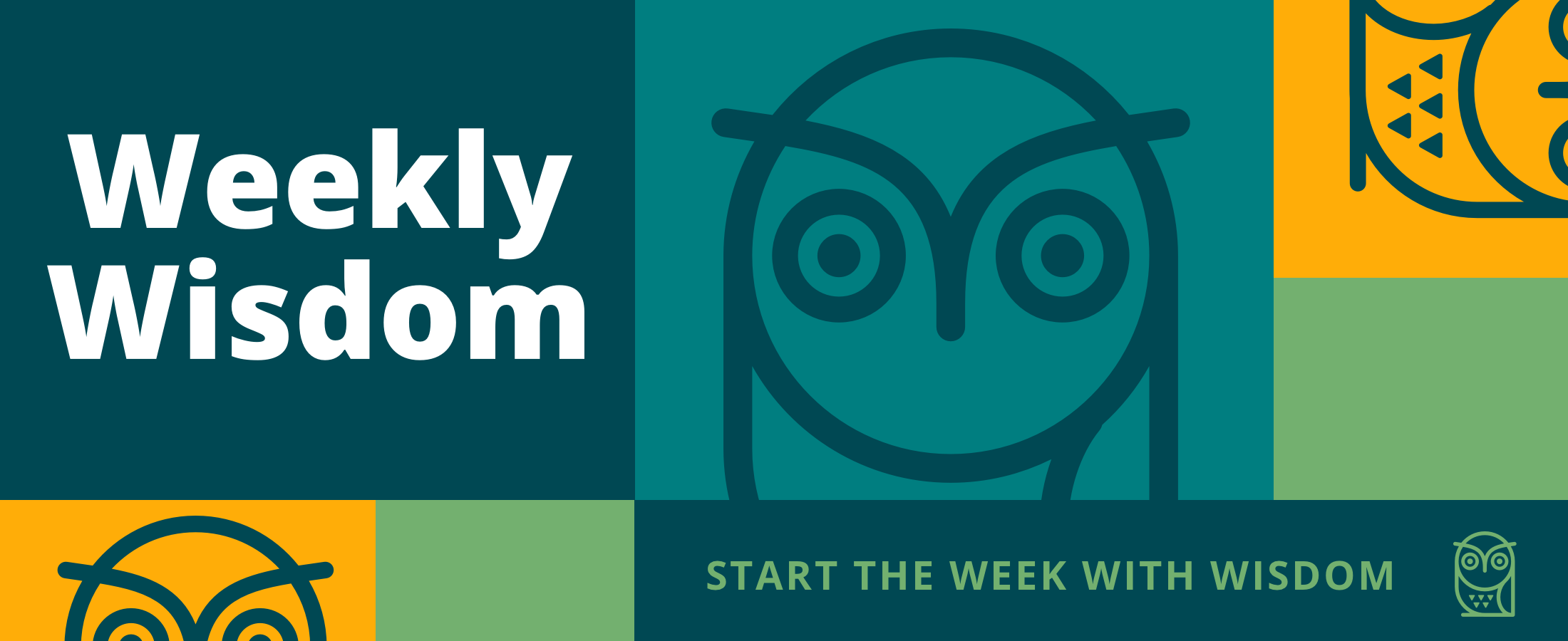You have to have a culture that embraces, supports, and is committed to these students and their success. The second key element is having the people who are committed to the culture. Once you have that platform, then you can start to think about programs. That’s the mindset we’ve brought to this.

Weekly Wisdom is an event series that streams live on Facebook, Twitter, and LinkedIn on Mondays. Each event also becomes a podcast episode. Every week, the UIA joins forces with Inside Higher Ed and talks with a sitting college president or chancellor about how they're specifically navigating the challenges of this moment. These conversations are filled with practicable things you can do right now by unpacking how and why college leaders are making decisions within higher education. These episodes will also leave you with a sense of optimism and inspiration.
We know now the world is much more complicated than we thought. Historic institutions that are non-adaptive are going to have difficulty adjusting to these kinds of high-speed changes. We need to instill the ability to adjust and keep performing our mission as a core part of what we do.
Michael Crow
This is the time when American higher education understands that our strength as a country will be inextricably tied to our success in bringing people from all backgrounds into the problem solving as we face the future.
Freeman Hrabowski, III
We’ve got a lot of important work to make sure that our institutions come through this pandemic and get stronger, at the same time that we address the issues that are right in front of us around systemic racism.
Mark Becker
If you start to address what’s important to people, I think people are going to take you seriously, regardless of if you’re in a room with them, or if you’re doing it virtually.
Frank Dooley
You’ve got to be willing to have courage to have these open and frank discussions, you’ve got to put yourself in a position to foster these kinds of discussions, and sometimes, more often than not, you will listen to your constituency and they will have the better solutions.
Harold L. Martin, Sr.
Bridget Burns, Executive Director of the University Innovation Alliance, and Doug Lederman, Editor and Co-Founder of Inside Higher Ed, speak with Dr. Michael Sorrell, President of Paul Quinn College in Dallas, Texas. Ten months after his previous visit to the Innovating Together Podcast, President Quinn shares his most recent wisdom about leading a Historically Black College or University (H.B.C.U.) through a turbulent year marked by the COVID-19 pandemic and a national protest movement against institutional racism. Topics include:
- Putting a human face on leadership
- Finding optimism amidst adversity
- Being an upstander for the moral role of higher ed
- Embracing the opportunity to make a difference for the disadvantaged
Bridget Burns, Executive Director of the University Innovation Alliance, and Paul Fain, Inside Higher Ed's Contributing Editor, speak with Dr. Alexander Cartwright, President of the University of Central Florida. As a first-generation college student in his own family, Dr. Cartwright has advocated for student success and higher graduation rates throughout his leadership career. His wisdom, compassion, and calm are truly refreshing. Topics include:
- Building relationships at a distance as a new leader at U.C.F.
- Advice for first-generation college students
- Higher education's transformative role in shaping America's future
- What servant leadership means
- A post-pandemic balance between technology and interpersonal relationships
Bridget Burns, Executive Director of the University Innovation Alliance, and Paul Fain, Inside Higher Education's Contributing Editor, speak with Dr. Kim Wilcox, Chancellor of the University of California, Riverside. Since 2013, Dr. Wilcox has overseen record improvements in Pell-eligible student success and the growth of an increasingly diverse faculty. He shares his wisdom about the unknowns and realities of beginning a new academic year during the COVID-19 pandemic. And amid all the uncertainties, he finds plenty of reasons for optimism and inspiration. Topics include:
- Starting the new academic year with caution
- Working within the realities of a tight budget
- Models for decision-making and interaction
- The power of supportive campus culture
- Envisioning post-pandemic hybrid models for academics and admin
- Understanding and celebrating the arc of success stories
